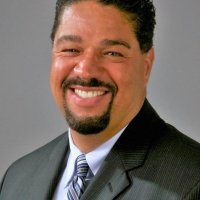Population, Security, and Development in the Sahel
The UN is calling the quadruple threat of famine in Nigeria, Somalia, South Sudan, and Yemen, “the world’s largest crisis since 1945.” But parts of the African Sahel could be heading for an even bigger catastrophe in the years ahead. The window of opportunity for a much-needed push in foreign assistance to address population, security, and development trends is closing fast, say some experts.
Please join the Wilson Center in a panel presentation with experts from the University of California Berkeley, University of Niamey, and the Ferdi Foundation. The panel will explore demographic projections, the link between security and development, and how strategic international aid can help shape the future of the Sahel.
Media guests, including TV crews, are welcome and should RSVP directly to Benjamin.Dills@wilsoncenter.org. Media bringing heavy electronics MUST indicate this in their response so they may be cleared through our building security and allowed entrance. Please err toward responding if you would like to attend.
Want to attend but can’t? Tune into the live or archived webcast at WilsonCenter.org (not every event is webcast live; archived webcasts go up approximately one day after the meeting date).
Join the conversation on Twitter by following @NewSecurityBeat and find related coverage on our blog at NewSecurityBeat.org.
Speakers
Moderator

Vice President, Sustainable Markets, Pact
Hosted By

Environmental Change and Security Program
The Environmental Change and Security Program (ECSP) explores the connections between environmental change, health, and population dynamics and their links to conflict, human insecurity, and foreign policy. Read more


Global Risk and Resilience Program
The Global Risk and Resilience Program (GRRP) seeks to support the development of inclusive, resilient networks in local communities facing global change. By providing a platform for sharing lessons, mapping knowledge, and linking people and ideas, GRRP and its affiliated programs empower policymakers, practitioners, and community members to participate in the global dialogue on sustainability and resilience. Empowered communities are better able to develop flexible, diverse, and equitable networks of resilience that can improve their health, preserve their natural resources, and build peace between people in a changing world. Read more
